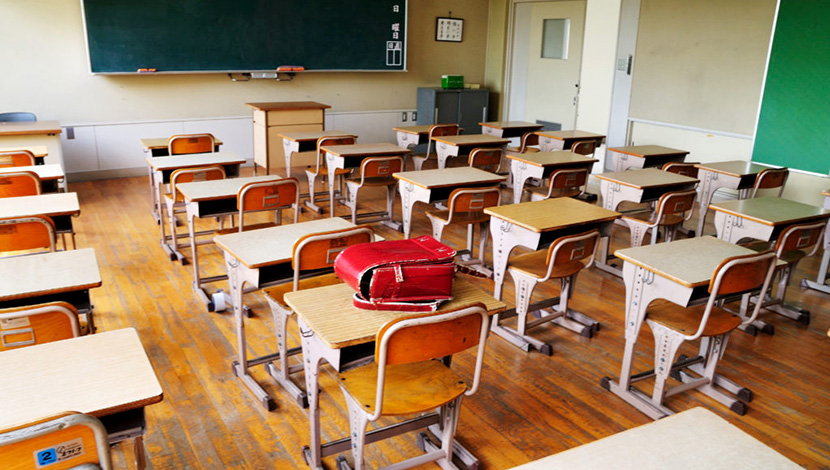Publisher's note: This post appears here courtesy of the Carolina Journal, and written by Mitch Kokai, Senior Political Analyst.

Some advocates of higher pay for N.C. public school teachers don't like the number $53,975. Specifically, they don't like that number reported as the average salary for a teacher in the Tar Heel State.
Their attempts to explain away that average fall short of the mark. But the criticism reminds us about the limited usefulness of the statewide average as a guide to good public policy.
First, let's address the source of the average number itself. Critics at an advocacy group called the Public School Forum of North Carolina label the $53,975 figure as having been "reported by" the N.C. Department of Public Instruction. In a statement quoted at WRAL.com, the forum contends that the DPI figure
"includes calculations that inflate the state 'average,' which results in a misrepresentation of what teachers actually earn in most districts."
Any such special calculations do not appear to bother the nation's largest teachers union. The National Education Association used the same $53,975 figure in its annual report on teacher pay issued March 12. NEA cited a one-year increase in the average from $51,231 to $53,975. That 5.3% hike moved North Carolina up from No. 34 to No. 29 in an annual ranking of the states. (Factor cost of living into the equation, and that ranking would
climb to No. 20, according to computations by my John Locke Foundation colleague Terry Stoops.)
The NEA's endorsement of the $53,975 average proved problematic for some participants in the highly publicized May 1 teacher union march in Raleigh. Multiple marchers held signs disputing the figure.
One sign proclaimed,
"If you believe the average N.C. teacher makes 54K, you will believe anything!" This observer's
response:
"If you don't believe the average N.C. teacher makes 54K, then you don't believe the union that helped organize the rally at which you are holding this sign."
DPI also responded to the criticism. The state government official who has calculated North Carolina's average teacher salary since 2002 explained to WRAL.com that the process has remained consistent from year to year.
In other words, neither the Republican-led General Assembly (in power since 2011) nor the Republican superintendent of public instruction (in office since 2017) has taken any steps to skew the average teacher pay number as calculated for the better part of two decades.
Though there's no evidence of nefarious tinkering with the data, let's look more closely at the Public School Forum's complaints.
Among the primary concerns is the use of an average local salary supplement figure. That average
"obscures the substantial differences in local salary supplements from one district to another, resulting in large disparities in average teacher pay depending on location," according to the forum. For example, the average in Dare County, the state's highest-paying system, reaches $59,223. The lowest-paying system, Swain County, offers an average of $47,554.
It's unclear why the statewide average salary calculation should take no account of the average salary supplement. That supplement number is just as critical as the average level of teaching experience. It's just as important as the average amount of pay tied to special certifications or extra school duties.
What appears to irk the Public School Forum is "inequities" in local salary supplements. Local governments and school districts
"that have the wealth to do so" offer "significant" supplemental pay. Meanwhile, the average teacher in more than 80 percent of North Carolina's school districts falls below the "reported" $53,975 average.
This disparity
"leaves so many teachers scratching their heads," according to the forum's Keith Poston.
"In reality, in most school districts teachers earn less than the average."
Two aspects of the supplement-related criticism are worthy of comment. First, focusing on school districts rather than teachers could prove misleading. North Carolina has 115 school districts in its 100 counties.
The two largest districts serve 160,000 (Wake) and 147,000 (Charlotte-Mecklenburg) students. The third-largest district (Guilford) is less than half as large. The state's smallest district serves fewer than 600 students. The largest system is more than 260 times as large as the smallest.
It should surprise no one that higher salaries in Wake and Charlotte-Mecklenburg have a major impact on statewide averages. The average teacher is likely to work in one of the districts with the most students. Only if our school districts had roughly equal student populations could we expect roughly half of the districts to reach the statewide average salary.
Second, different local salary supplements are not necessarily based solely on "inequities." Elected local school boards set supplement levels based on funding made available by elected county commissioners. While the size of the local tax base certainly affects those decisions, local politics and varying local government priorities also play prominent roles. It's inaccurate to assert that all school systems would offer the same local supplements if not for different economic circumstances.
Perhaps the key takeaway from this discussion is the limited usefulness of one single number for average N.C. teacher pay. Politicians from both parties have latched onto the figure. They have suggested that a higher average is necessarily better - especially in comparison with other states.
But the statewide average has its drawbacks. Most importantly, it
focuses attention squarely on an education input rather than an outcome. That includes the most important outcome: student achievement.
Regardless of the merits of the Public School Forum's arguments, its complaint gives us
another reason to
question the importance of
average teacher pay.
Mitch Kokai is senior political analyst for the John Locke Foundation.

























